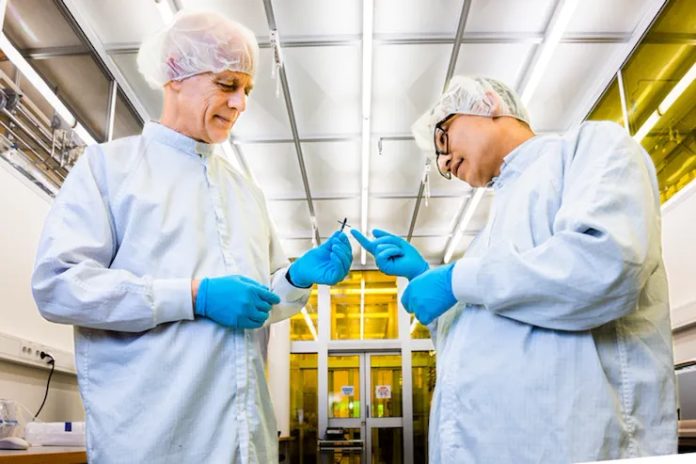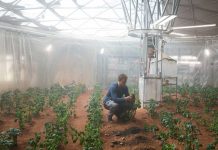The pace at which electronics change has created an electronic waste problem because most of the materials used to make the working parts of portable electronic devices are not reused or recycled. Zhenqiang Ma, a professor of electrical and computer engineering at the University of Wisconsin at Madison, and his team have developed the first functional silicon transistors that are flexible and biodegradable.
Cellulose nanofibrillated fiber made from wood is the heart of the new development. Silicon nanomembranes are peeled from the bulk crystal and glued to the cellulose substrate. The cellulose nanofibrillated fiber is transparent and flexible.
The new methodology was proven equivalent to present designs and was shown to be superior in many respects. The coefficient of thermal expansion of the cellulose nanofibrillated fiber is lower than conventional materials. This means the transistor develops less heat and can last longer. There is an inherent safety advantage in portable devices that do not get hot. The cellulose material has a superior microwave-frequency operation capability than present technology so transition to the new transistor system will be seamless. Flexibility is equivalent to plastics.
The U. S. Environmental Protection Agency claims that 152 million mobile devices are discarded every year and only 10 percent of the devices are recycled. The cellulose based transistors can be decomposed by bacteria that are common to most environments. The resulting materials from the decomposition are wood and sand. The researchers plan to replicate all circuitry used in portable electronics with a cellulose based substrate.















